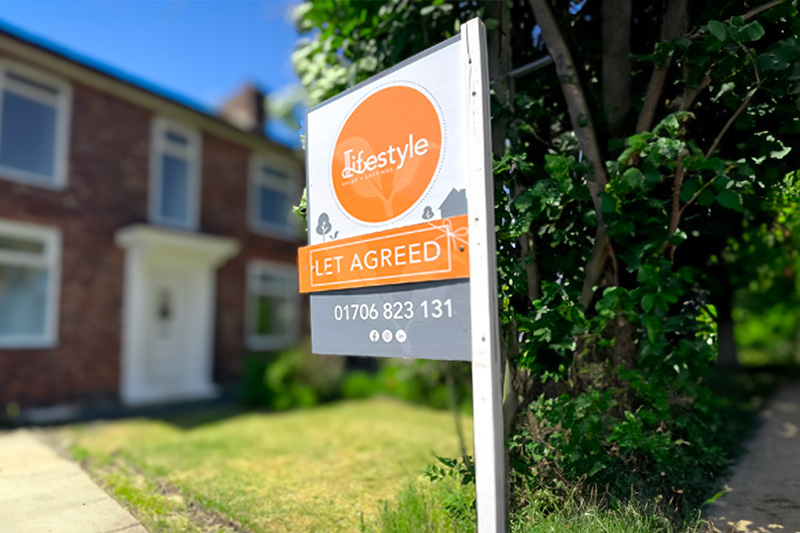Renting out a property can be a rewarding experience, but it requires careful preparation to ensure a smooth and successful process for both landlords and tenants. From maintenance to legal compliance, every detail matters. Here’s a step-by-step guide to help you prepare your property for letting.
1. Fix All Maintenance Issues
Before advertising your property, it’s crucial to address any existing maintenance problems. These can include:
- Address Repairs: Small issues like leaky faucets, broken fixtures, or damaged flooring should be fixed promptly. These minor repairs prevent potential complaints from tenants and avoid the escalation of problems into more costly repairs.
- Resolve Damp Issues: Damp can lead to serious structural and health issues. Rather than just covering up the symptoms, identify and fix the underlying causes, such as leaks or poor ventilation. Tackling dampness at its source will prevent recurring problems.
- Gardening: A well-maintained garden can enhance your property’s appeal. However, keep it simple and manageable, as not all tenants enjoy gardening. Low-maintenance landscaping is ideal, ensuring that the garden remains attractive without requiring too much effort.
2. Legal Compliance and Safety
Ensuring your property meets legal standards is not just a matter of law; it also protects your tenants’ safety and your investment. Key compliance aspects include:
- Gas Safety Certificate: An up-to-date Gas Safety Certificate is legally required for rented properties. This certificate confirms that all gas appliances, fittings, and flues are safe.
- Boiler Servicing: Regular servicing of the boiler ensures it operates efficiently and safely, reducing the risk of breakdowns and hazards.
- Electrical Installation Condition Report (EICR): This report assesses the safety of the electrical installations in your property. It’s essential to have an EICR done by a qualified electrician to avoid potential electrical hazards.
- PAT Testing: If you provide electrical appliances as part of the rental, ensure they are PAT tested. This testing checks the safety of portable electrical appliances, reducing the risk of electrical accidents.
3. Cleanliness
A clean property is more attractive to potential tenants and sets the standard for how they should maintain it. Before new tenants move in, ensure every part of the property is thoroughly cleaned, including carpets, kitchens, bathrooms, and windows. A clean start encourages tenants to keep the property in good condition.
4. Choosing a Letting Agent
If you decide to use a letting agent, choose one with a good reputation and extensive experience. A reputable agent can handle various aspects of property management, including:
- Tenant Screening: Ensure the agent conducts thorough background checks, including credit checks, references, and verification of employment and bank statements. Even when using an agent, consider reviewing the potential tenant profiles to make a final decision together.
5. Financial Preparations
Being financially prepared can save you from stress and unexpected costs. Key preparations include:
- Slush Fund: Set aside a fund for emergency maintenance and potential rent arrears. This financial cushion ensures you can handle unexpected expenses without delay.
- Rent Guarantee and Legal Cost Cover: Consider obtaining insurance that covers rent if tenants default and legal costs if eviction proceedings are necessary. This provides financial security and peace of mind.
6. Tenant Relations and Legal Knowledge
Maintaining a good relationship with your tenants is crucial for a positive rental experience:
- Be Fair but Firm: A fair approach helps build trust, while being firm ensures that boundaries and agreements are respected. Clear communication can prevent misunderstandings and resolve issues quickly.
- Know Your Rights and Responsibilities: Familiarise yourself with landlord-tenant laws to ensure compliance and handle disputes effectively.
7. Final Tips
- Good Communication: Establish open lines of communication with your tenants. This helps in addressing any issues promptly and maintaining a positive relationship.
- Regular Inspections: Conduct regular inspections to ensure the property is well-maintained and to address any potential issues early.
- Proper Insurance and Mortgage: Ensure you have the correct insurance coverage, including landlord insurance, and the right mortgage terms for rental properties.
By following these steps, you can create a welcoming and safe environment for your tenants, protect your property, and ensure a successful rental experience. Remember, being a good landlord benefits both you and your tenants in the long run.
